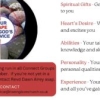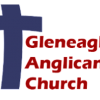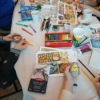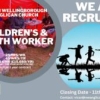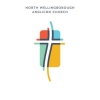Update from Mark and Arleen Rowell April 2020
Dear friends,
This comes with our very best wishes in these difficult days. Like for many of you, a lot has changed for us over the last few months. Arleen’s mother became very unwell at the end of November so Mark picked up Arleen’s English classes in Moldova as well as his own while she returned to Northern Ireland to support her mum. Mark was well looked after meanwhile, by the Cahul church family and teaching staff, with gifts of meals and goodies often coming his way.
Since January mum has been having chemotherapy for myeloma and thankfully there has been some improvement. In February Arleen’s sister came to stay, which allowed Mark and Arleen a few days away at the beautiful Co Antrim coast and we had some wonderful walks along the beaches. Through this time, we have had many encouragements despite the pressures. A book ‘If it’s not too much trouble’ by Ann Benton helped to give insight into the issues surrounding the care of elderly family members and the value of serving in this way. Although we don’t have clarity on a longer-term plan it seems right for Arleen to remain in this role and review the situation in early summer.
The English classes seemed to be thriving and one class met Mark for a Sunday afternoon walk to explore secret Cahul. A network of underground tunnels used by the Turks is being excavated and they had a look at those, finishing off in a café for tea and cake. Relationships have deepened and we have become very fond of so many of these young people.
We, like everyone else have now been overtaken by events surrounding Covid 19. Mark felt it right to return to the UK when the schools closed and lessons stopped mid-March. He had one of the last few flights leaving Moldova and stayed in Wellingborough for a few days before taking one of the last few flights from England to NI. He’s now very good at packing quickly!
For the past four weeks we have been together in Antrim. Arleen continues to care for her mother and Mark has started to teach some online lessons with the students in Moldova. Zoom is wonderful and it has been a real privilege to maintain and develop contact with these young people, who are very appreciative of the support. Last weekend was Easter in Moldova and we were able to share a message of resurrection hope with the students and were so pleased to have some lovely responses.
We have much to thank the Lord for-
- for your prayers and friendship. We love to hear what is going on in your lives too.
- for mum’s improved pain control and the fantastic healthcare team who treat her.
- for the love demonstrated to us both in Moldova and the UK.
- for the Lord’s care and protection on our complicated travels, by coach, plane, train, boat…
Please continue to pray –
- that many students will hear and receive the good news of the Saviour
- that the church in Cahul will reach those in need and the summer youth camps will go ahead
- for the other teachers, especially the local ones who face many pressures at this time
- for wisdom, strength and peace as we consider what the Lord would have us do
With our very best wishes, Mark and Arleen
Safeguarding Guidelines for online meetings
Zoom
- Leaders to set up zoom meeting.
- Meeting link, Id, Date and time to only be shared in an email or closed groups
- For children and youth, parents to be the point of contact
- If zooming with under 18s, two leaders with DBS need to be present.
- Any screenshots of the zoom call to be taken only with participants expressed permission. For under 18s this needs to be their parents permission.
- Zoom chat with under 18s have to be addressed to everyone and monitored by the leaders.
- When there is a disclosure of safeguarding risk follow existing parish safeguarding guidelines.
Facebook use
- Facebook pages are a public platform.
- Page admins to monitor content and to delete anything deemed unhelpful.
- Church members to not engage in debate with unfriendly posts.
- Adults to not accept any friend requests from those under 18.
- Any messages conveyed over chat boxes to those under 18 need to be in a group with adults that have DBS.
- Photos shared over Facebook for under 18 must have permission from parents.
Reflection on Easter
Steve Benoy writes….
One of the things which we often miss out on around this time of year is fully remembering the events of what we call Holy Week. Because we usually gather on a Sunday, unless we are intentional about it, we go from one service full of praises as we remember Jesus entering Jerusalem to the shouts of Hosanna, to another service the following Sunday where it’s all Thine be the glory and Alleluia Christ is risen!
Even this forgets that on Palm Sunday, dark clouds of opposition to Jesus are growing gloomier by the minute, and the bright rays of resurrection the following week actually were utterly confusing to the first disciples. And in between, there has been the utter emptiness and loss of Friday.
We talk about being a Christian as walking with Jesus. Perhaps this year, our circumstances might allow us to walk with him, just a step further each day. And perhaps our resurrection joy might grow from different, richer soil on Sunday.
From time to time we speak of Jesus as the man born to die. At Christmas time we celebrate the birth of the Saviour, but even then it can be tempting to move quickly in our minds from the vulnerable baby and linger instead on the wounded man, the irony of the carpenter nailed to a piece of wood.
Can you imagine what it must have been like for Jesus to know his fate from the beginning? We live in uncertain times. We make plans all the time but now more than ever we see how temporary they are. We’ve made plans, got our goals, nurture our ambitions & dreams, but then reality happens.
Jesus, the Word made flesh, knew his fate from the beginning. It is written, the Christ will suffer and rise, He said.
He knew three years before when the devil had tempted him in the desert, offering a shortcut to glory, an alternative kingdom. All this I will give you if you bow down and worship me. He knew to the point where he warned his disciples what would take place during that first Easter week, not once but three times. The Son of Man must suffer many things, be rejected and killed and three days later will rise. He knew when he pleaded with his Heavenly Father, sweating blood in the Garden of Gethsemane take this cup of suffering away, yet not my will, but yours be done.
I’ve been reading John’s gospel through Lent, and one of the themes in John’s gospel is how the cross is described as a moment of glory. Jesus repeatedly spoke of it as the time when he would be glorified, when he would draw all people to himself. For the glory of the cross was the moment when he would in ultimate exhaustion and pain declare: It is finished.
Today, we could simply look on from 2000 years distance and admire the courage and nobility of this suffering. Or we could allow the power of Christ’s suffering to provide the perspective through which we view the world as it really is, not as we would think it should be.
In truth, God thinks the world should be different. He made it to be so and one day will make all things new again. We know our world is a world of wonder and yet also of suffering. Often we are insulated from this. So it is rare for practically every country in the world to be threatened by exactly the same thing.
Suffering calls out of us the courage to say: this is what matters to me, this is who I am, this is what I dare to believe. And in suffering we also ask God to justify himself. Where are you? What are you doing? Why can you not change this?
The fact is that Christ’s suffering means God is not only worth our attention in the good times. He doesn’t scarper at the first hint of trouble. He shares our longing for a different world, a new heaven and a new earth. But he will share our journey through this world, whatever may come.
The God we believe in is a God who suffers but for whom suffering is not the end. The God we believe in is a God who dies but who says death is not the end. The God we believe in is with us in life as it is, and points the way to a life that will be.
The cries of Christ on the cross are also the cries in the deepest parts of the human heart. There is the cry of suffering and struggle: My God, my God, why have you forsaken me. There is the cry of hope and trust: It is finished.
We are truly followers of Jesus, we are truly taking up our cross and following him, when in the midst of struggle we trust, when in the heart of suffering we stir our hearts to hope, when we open our lives to receive God’s life poured out as he dies on a cross.
